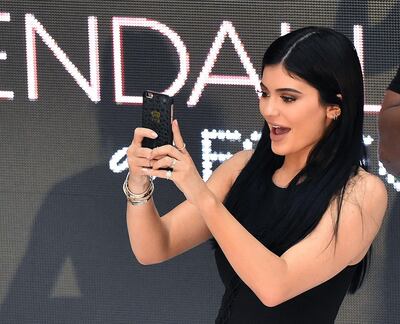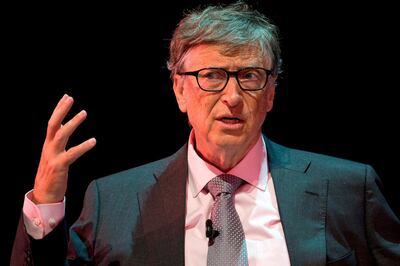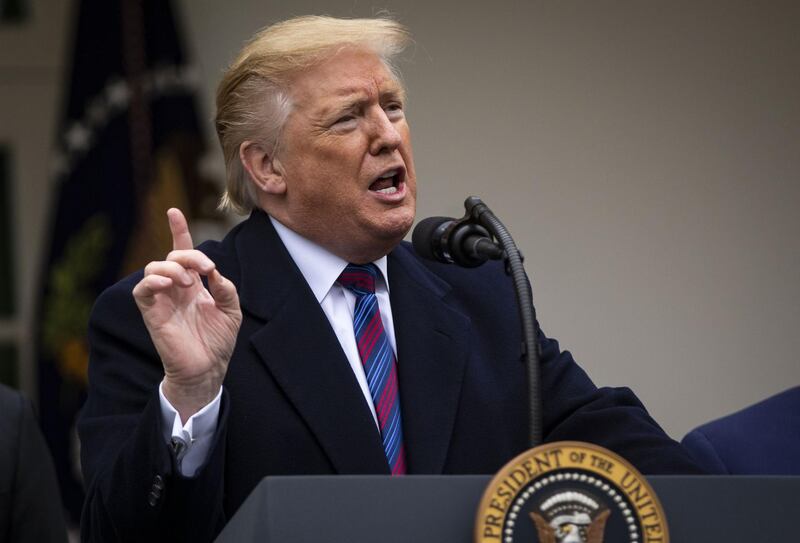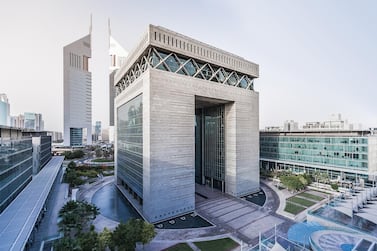Donald Trump
US President Donald Trump's personal fortune held steady over the past year, but he vaulted higher on the Forbes list of the richest people in the world as dozens of his fellow tycoons suffered financial setbacks.
Trump's $3.1 billion (Dh11.38bn) net worth is unchanged from last year, Forbes said. Still, his real estate holdings held their value better than assets that make up the portfolios of a lot of other billionaires, boosting him 51 spots to 715th among the world's 2,153 billionaires, said Luisa Kroll, Forbes Magazine assistant managing editor.
"He moves up because so many billionaires dropped in the ranks," Ms Kroll says. "He kind of stayed flat but was able to increase his position."
Jeff Bezos, founder and chief executive officer of Amazon.com , held his No. 1 spot on the list, with a net worth of $131bn. But it may be his last time on top, now that he and his wife MacKenzie Bezos are divorcing. She was an early accountant at Amazon and may be entitled by Washington state law to half his stake in the company, Ms Kroll said.
"If that happens he would not be Number One and she would be the world's richest woman," Ms Kroll says.
The 2019 list shrank in both the number of billionaires and value. In 2018, there were 2,208 billionaires, or 55 more than this year, with a combined net worth of $9.1 trillion, compared with $8.7tn in 2019.
At the same time, the very rich face a growing anger from the general public, Ms Kroll says.
"We are in a bad moment for the very rich," Ms Kroll adds. "You see a vehemence against these people because of the wealth inequity that we see in the world. Nobody's immune from market forces and markets being shaken up, and that's impacting even the ultra-rich."

Kylie Jenner
Making the biggest splash on this year's list was Kylie Jenner, 21, who became youngest self-made billionaire of all time - thanks to the success of the cosmetics company she founded three years ago - with a fortune of $1bn. The half-sister of reality television stars Kim, Khloe and Kourtney Kardashian, Jenner made her debut on the list this year after spinning $250,000 she earned from modelling into a fortune.
Like many women her age, Jenner is active on social media. But she’s done one thing that no one else has: build a billion-dollar fortune by the age 21. Jenner is the youngest person to become a billionaire with her own company, Kylie Cosmetics, and she has several other young billionaires to thank.
“The business would not exist at its current size without social media,” says Conor Begley, co-founder of brand-marketing company Tribe Dynamics.
Instagram co-founder Kevin Systrom, Snapchat co-founder Evan Spiegel, Facebook co-founder Mark Zuckerberg and Twitter co-founder Jack Dorsey are all billionaires younger than 45.
Each of Jenner’s Instagram posts is worth about $1 million, according to Hopper HQ, a social media scheduler. Jenner’s posts include family photos and mirror selfies, in addition to new product announcements or promotions for blush, lip gloss and eye shadow. Jenner has 128 million followers on Instagram, and plenty of others on Twitter, Facebook and Snapchat.
“She’s a unique case in that she has a massive, massive audience,” Mr Begley says. “That can be replicated for sure.”
Kim Jung-woong
Face masks can moisturise, exfoliate, or soothe and cool the skin in minutes. They can also build billion-dollar fortunes, but that takes a tad longer - two years in Kim Jung-woong’s case.
With skincare becoming ever more central to the pursuit of beauty, a few Koreans have amassed fabulous wealth as more consumers are determined to achieve that elusive dewy look.
Banks and big cosmetics makers around the world have noticed.
In October, Goldman Sachs Group acquired 5 per cent of Kim’s GP Club in a $67m deal that values the maker of creams, lipstick and other beauty products at $1.3bn. Mr Kim, 44, and his family own the remaining 95 per cent.
The investment bank told the company that it had been watching the cosmetics market with keen interest, Son Moon-ho, GP’s Club chief operating officer at the time, said in an interview in January. Christopher Jun, a Goldman Sachs spokesman in Seoul, declined to comment. Mr Son has since left the company.
Mr Kim started his career in the beauty industry selling cosmetics to wholesalers in China and established his own brand, JM Solution, in 2016. It took off from the start, gaining popularity on Alibaba’s flagship e-commerce platform, Taobabo.
Then geopolitical tensions struck Korea’s beauty market.
In 2017, South Korea allowed the US military to install the Terminal High Altitude Area Defense system (Thaad) to counter North Korean nuclear threats. Beijing interpreted that as a move against its own security interests, and state-run news outlets urged boycotts of Korean products.
In the heat of these tensions, GP Club took advantage of its position as a relatively smaller and newer brand.
“We were obscure at the time, so we suffered less than other big brands," Mr Son said. “The key to pulling ahead of the competition was extending sales channels while others were slowing down.”
The company introduced a new product, the Honey Luminous Royal Propolis Mask, and expanded into Korean duty-free shops. GP Club’s lower prices attracted so-called daigou shoppers - people buying products for clients in mainland China, where access to foreign goods is limited and prices are higher.
GP Club defied the rout and sales continued to grow, increasing to 9.5 million mask sheets in December 2017, and a record 100 million sheets in August 2018. Revenue surged to 300bn won (Dh970m) in the first half of last year, up from 50bn for all of 2017, according to Mr Son. That got Goldman’s attention.

Bill Gates
A coalition of billionaires led by Bill Gates has thrown its financial weight behind a startup hoping to build a "Google Maps for the earth’s crust" to hunt for new sources of cobalt.
The startup, Kobold Metals, is using data-crunching algorithms to scour the globe for cobalt, in a bet that there may still be significant undiscovered sources of the metal that has become one of the world’s hot commodities thanks to its use in electric vehicle batteries.
The company has raised money from Silicon Valley venture capital firm Andreessen Horowitz and Breakthrough Energy Ventures, a fund backed by Gates and a dozen other tycoons including Jeff Bezos, Ray Dalio and Michael Bloomberg, owner of Bloomberg, the parent company of Bloomberg News.
Kobold Metals is betting it will be able to find new sources of the metal using what it calls "machine prospecting." The company is building a database of geological data that it then feeds into an algorithm, hunting for signals that indicate the likelihood of increased concentration of cobalt.
"What we’re building is basically Google Maps for the earth’s crust and below," says Connie Chan, partner at Andreessen Horowitz.
Kurt House, the chief executive officer of Kobold Metals, says the approach could succeed because mining companies have traditionally not focused on looking for cobalt. The metal is a byproduct of copper or nickel mining in all but one of the world’s cobalt mines, and more than two thirds of global supply comes from the Democratic Republic of Congo.
"People just haven’t looked for the stuff," says Mr House. "There’s very limited history of exploration at all outside of piggybacking on nickel and copper deposits."








